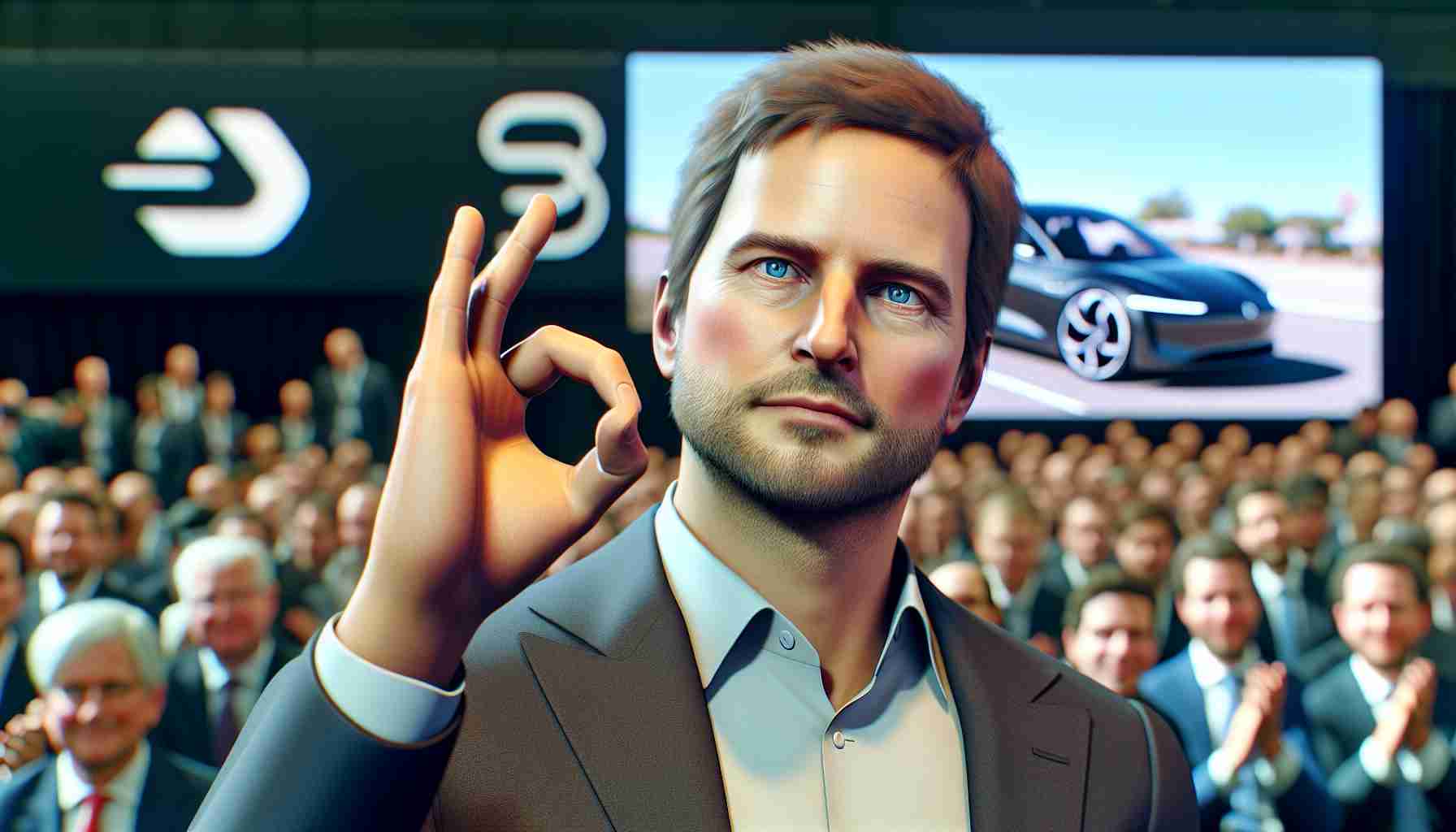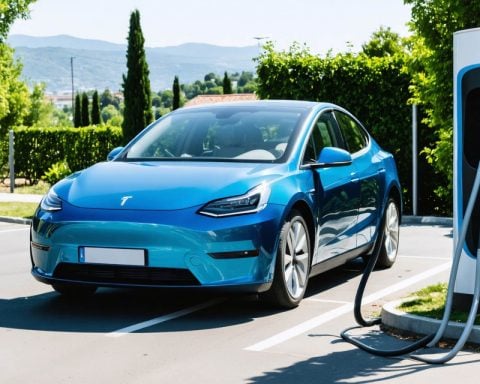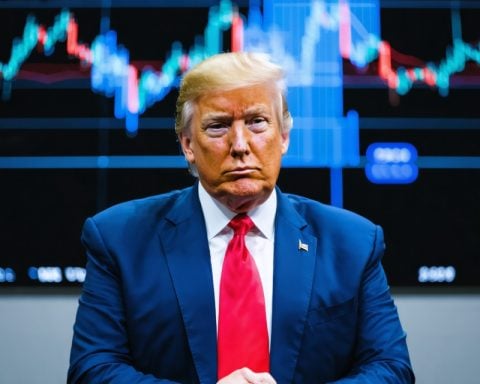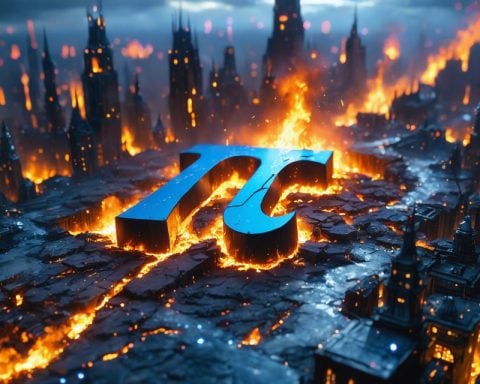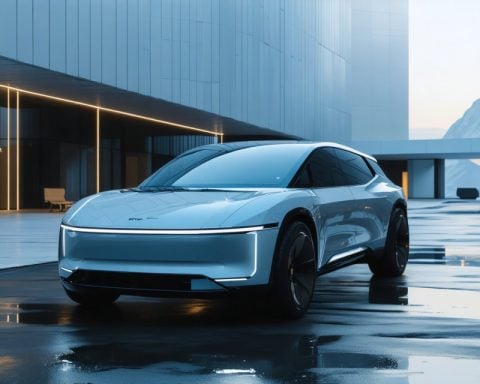Elon Musk’s recent appearance at a high-profile event has ignited a fierce debate over a gesture he made. While some speculate it was a Nazi salute, Musk remains largely silent on the matter. The ripple effects of this controversy could significantly impact Tesla’s future, especially as the company gears up for its highly anticipated robotaxi service.
This incident has raised questions about Tesla’s brand image, particularly among urban consumers who are increasingly shifting towards services like robotaxis rather than car ownership. With political affiliations playing a vital role in consumer decisions, perceptions of Musk’s actions may steer some people away from purchasing Tesla vehicles, although the extent of this impact remains uncertain.
Robotaxis are poised to revolutionize urban transport, but their success relies heavily on acceptance from liberal city dwellers. If Tesla is unfairly marked by past associations, it could face severe competition from other autonomous service providers unless it significantly outperforms them in quality and pricing.
Meanwhile, Tesla is still in the developmental stages of its robotaxi, and it faces mounting pressure to address both safety and brand reputation. The road ahead appears challenging, with the prospect that past missteps could haunt Musk and Tesla during this critical transition to an urban mobility service model. As the company navigates this complex landscape, its future will ultimately hinge on public perception and the ability to deliver on its ambitious promises.
Broader Implications of Controversy in Tech Leadership
The public’s response to Elon Musk’s gestures—and the resulting discourse—reflexively intersects with broader societal and cultural currents. As technology leaders become increasingly visible in shaping public opinion, their actions can inadvertently steer cultural narratives. Musk’s recent controversy not only amplifies existing divisions among consumers but may further galvanize movements aimed at holding corporations and their leaders accountable for their social impact.
In the global economy, the fallout from this incident could reverberate through consumer confidence and brand loyalty across the tech sector. Companies are now more than ever scrutinized for the values they embody and promote. The rise in consumer activism suggests that brands perceived as politically controversial may confront declines in competitive edge, especially in markets where progressive ideals dominate. Companies not only have to engage in innovative business practices but also be vigilant about fostering a positive social narrative.
The environmental implications of Musk’s actions also warrant examination. As we transition to a low-carbon future with innovations like robotaxis, public support for sustainable initiatives is imperative. If leaders are embroiled in divisive controversies, they can risk undermining momentum for solutions that address climate change. Furthermore, the advancement of electric vehicle infrastructure could stall, impacting efforts to reduce carbon emissions from urban transport in the long term.
Looking ahead, a cultural reckoning within the tech community can determine leader accountability. Long-term significance may hinge on how successfully these leaders navigate societal expectations while promoting technological advancements that align with a more inclusive and responsible future.
Elon Musk’s Controversy: Will It Impact Tesla’s Robotaxi Revolution?
The Controversy and Its Implications
Elon Musk’s recent actions at a major event have sparked considerable debate, particularly regarding a gesture that some allege resembled a Nazi salute. This incident has not only raised eyebrows but also stirred discussions about Tesla’s brand image, which is paramount as the company prepares to launch its highly anticipated robotaxi service.
Robotaxis: A New Era in Urban Transport
The concept of robotaxis is set to disrupt urban transportation significantly. As cities become more congested and residents seek cost-effective alternatives to traditional car ownership, robotaxis promise to offer convenience, affordability, and efficiency. The success of this transition, however, hinges on overcoming public skepticism, especially among liberal urban consumers who may now view Tesla through a more critical lens.
How Brand Image Influences Consumer Choices
With growing awareness around social and political values, today’s consumers often consider a brand’s leadership and ethics when making purchasing decisions. Musk’s controversial gesture may cause some potential customers to reconsider their interest in Tesla vehicles, ultimately affecting sales. Studies indicate that brands associated with negative perceptions tend to experience declines in customer loyalty and market share.
Comparisons to Competitors
As Tesla navigates this turbulent scenario, it faces fierce competition from other autonomous vehicle service providers. Companies like Waymo, Cruise, and Uber are also looking to penetrate the robotaxi market, and if Tesla cannot decisively differentiate itself through performance and pricing, it runs the risk of being eclipsed. Reports suggest that many consumers favor competitors that are pioneering safety enhancements and environmentally sustainable practices.
Safety and Brand Reputation: A Balancing Act
Tesla’s robotaxi project is still in its developmental phase, and significant pressure mounts on the company to demonstrate safety and reliability. Any missteps in safety standards could lead to regulatory scrutiny and further damage to its public perception. Innovations in artificial intelligence and self-driving technology are essential to assure users of their safety while using Tesla services.
The Road Ahead: Predictions and Insights
Looking forward, several trends indicate that public sentiment will heavily influence Tesla’s market success. Leaders in autonomous services who prioritize transparency and corporate responsibility may navigate through negative publicity more effectively. Predictions suggest that as awareness around social issues grows, brand image will play a critical role in service adoption.
Conclusion
Elon Musk’s recent controversy has opened up a complex dialogue about the future of Tesla in the rapidly evolving urban mobility landscape. The company must work diligently to bolster its reputation and deliver on the promises it has made regarding its robotaxi service. As public perception adapts, so too will Tesla’s strategies, requiring a delicate balance between innovation, safety, and societal values.
For more insights on Tesla and urban mobility advancements, visit Tesla’s official site.

